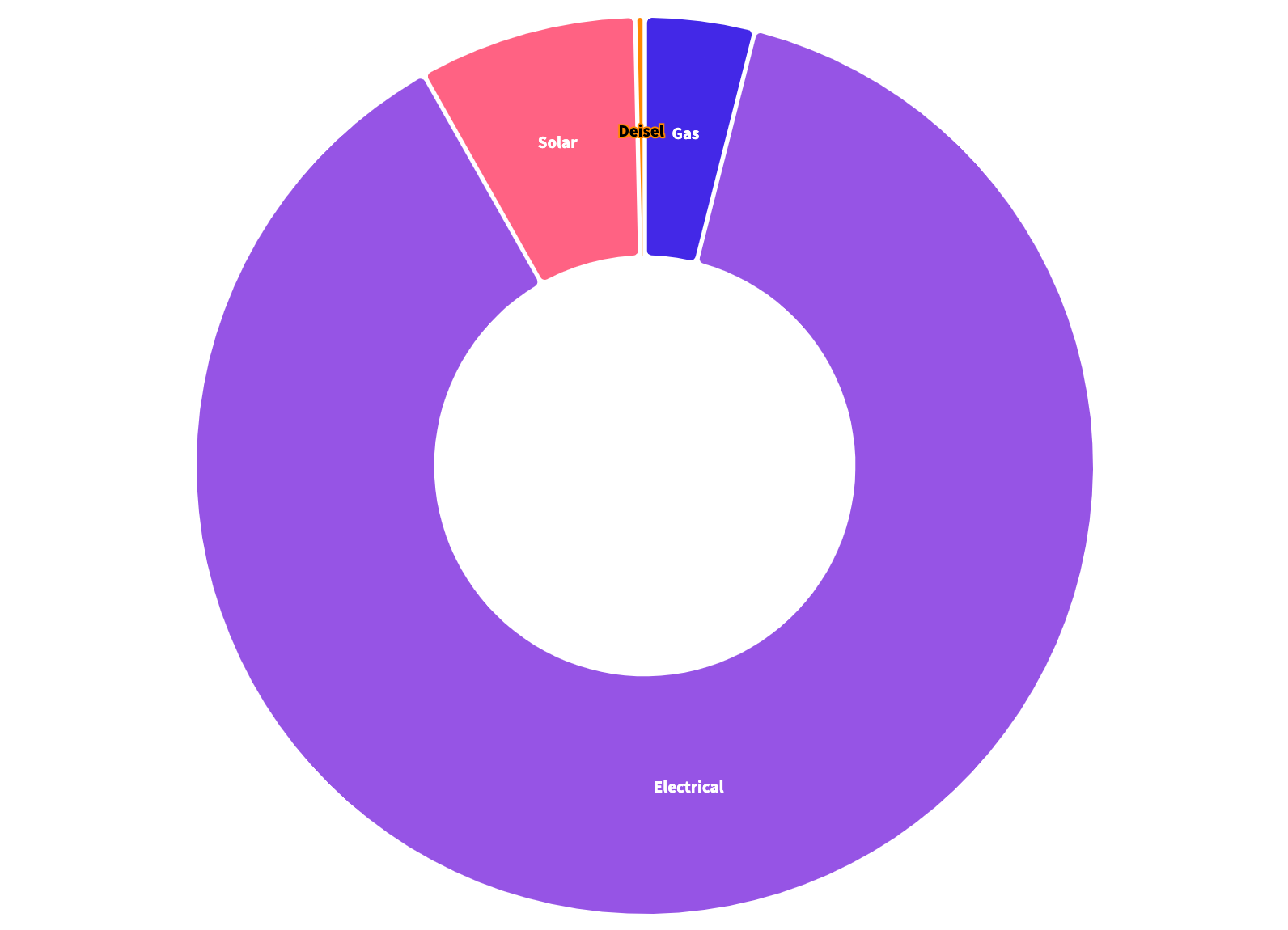Southern Oregon University (SOU) diversifies its energy consumption through various sources, primarily through purchased electricity, natural gas, and solar energy generated on campus.

The above image shows SOU’s energy use by category. Electrical: 6984 kWh; Solar: 623 kWh; Diesel: 28 kWh; Gas: 314 kWh.
The predominant energy source on campus is electrical energy, accounting for roughly 39% of the university’s greenhouse gas (GHG) emissions. Electricity, forming 76.7% of the campus’s total energy consumption, is purchased from Ashland Electric, City of Ashland’s municipal utility.
SOU’s solar initiatives have resulted in the installation of numerous solar panels across the campus, generating over 600,000 kWh annually and contributing to 6.9% of the campus’s total energy needs. In line with the university’s sustainability goals, SOU aims to generate 100% of its daytime energy requirements from solar power by 2033, significantly reducing GHG emissions and achieving substantial financial savings.
Natural gas, supplied by Avista, forms about 18% of SOU’s carbon footprint and accounts for approximately 3.5% of the total energy consumption on campus. It is sourced at the Heat Plant and then distributed to various buildings across campus. Efforts to minimize natural gas usage include transitioning to electric appliances, installing more efficient boilers, and promoting energy reduction campaigns.
Diesel and gasoline fuel the university’s fleet of vehicles, utilized for diverse purposes to operate the campus. SOU has a goal to move towards a more sustainable campus fleet utilizing electric vehicles.
Sustainability Department
SOU’s Sustainability Department collaborates with various campus departments to foster sustainability initiatives, monitor progress, and track metrics like waste and energy consumption. The department plays a vital role in seeking sustainability grants and managing received grants. It is also responsible for energy tracking and supporting energy reduction initiatives.
Facilities
SOU’s Facilities Management and Planning Department is instrumental in the university’s sustainability efforts, contributing to resource conservation, energy efficiency, and water conservation through initiatives like lighting retrofits, occupancy sensors, and solar systems that generate over 600,000 kWh annually.
The Facilities Department plays a crucial role in managing and maintaining all campus energy usage, encompassing the installation, operation, and maintenance of new equipment, as well as its eventual replacement with newer, more efficient alternatives. As such, the Facilities Department is integral to SOU’s ongoing commitment to sustainability.
SUSTAINABILITY
Sustainability at SOU
1250 Siskiyou Blvd
Ashland, OR 97520
sustainability@sou.edu
541.552.8139

